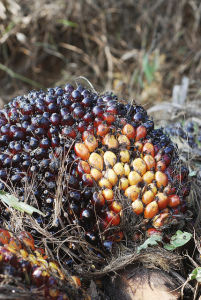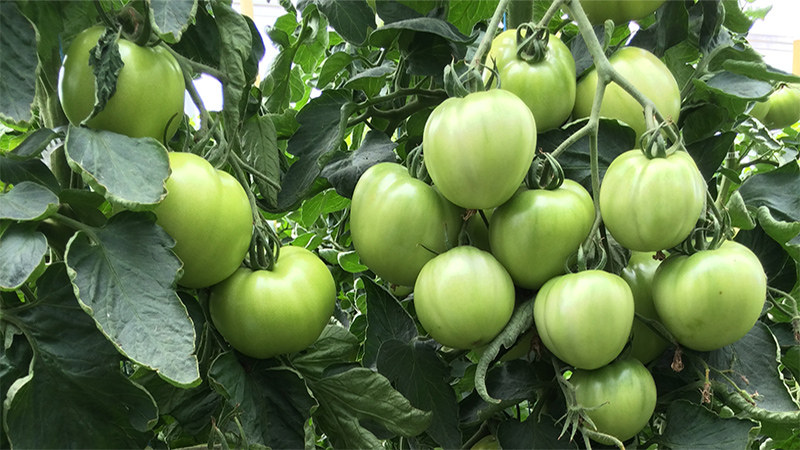The Next Norman Borlaugs

Walmart will require sustainably sourced palm oil for all its private brand products globally by the end of 2015.
Photo courtesy Walmart Corporate
Even Norman Borlaug had critics. The man credited with saving a billion people from starvation was told by some to let them die, despite his track record of saving Mexico from endemic hunger.
Borlaug’s acclaimed dwarf wheat varieties were bred in Mexico during his work there beginning in 1944. His work entailed long hours of tedious work hand-selecting preferred varieties and then isolating them to be short, strong and resistant to rust. He succeeded not only in producing better plants, he also overhauled the country’s cultural practices, emphasizing fertilization and irrigation at specific timings. Mexico was self-sufficient in wheat production by 1956, and Borlaug had created new cultivars and cropping systems that would be copied and distributed throughout the world.
But when India and Pakistan showed signs of famine in the mid-1960s, many agronomists and economists said food production could never keep pace with population growth, and cultural practices were too disparate to implement Borlaug’s blueprint. India was deemed beyond hope for some. Borlaug proved them wrong, and by 1974 India was self-sufficient in the production of all cereals. Critics were silenced, technology prevailed, and the Malthusian catastrophe predicted by popular authors of the era remained a theory.
Today’s criticism of agriculture systems is far more deregulated. Retailers and consumers are more educated, vocal and powerful than ever before, and their demands are percolating through the value chain. Their mandates are clear: They want sustainable consumables that are fairly traded and delivered all year long. This new directive it is impacting all companies great and small.
Walmart’s recently enacted sustainability initiative caused a mild panic among produce suppliers. Almost overnight, carbon tracking, water use, energy consumption and traceability became top-of-mind for growers who expected these inevitabilities to be instigated by regulators long before food retailers.
Unilever, the 18th largest company listed on the London stock exchange with revenues of $67.8 billion in 2012, launched a campaign in 2012 to re-engineer their supply chain to include 100% sustainable sourcing, partly at the urging of their largest retailers, including Walmart.
“Walmart moms – which is how Walmart refers to their customers – want to buy sustainable products, but they won’t pay a penny more so for them,” says Jan Kees Vis, global sustainable sourcing development director for Unilever. “So it is up to corporations to deliver these initiatives.”
These grassroots demands are changing the way the 400-brand behemoth does business, and its suppliers are changing with them. Farmers, input providers, logistics companies, processors, retailers and even consumers are under the microscope as Unilever benchmarks carbon emissions, water use and energy consumption for the cradle-to-grave lifecycle for each of its products. Products that include Ben & Jerry’s, Breyers, Best Foods, Lipton, Knorr, Hellmann’s, Red Rose, Ragu and a staggering array of margarines. It has 17 brands that generate more than $1 billion in sales each year, and it is on a continuous hunt for raw materials from sustainable suppliers.
Its palm oil initiative is its furthest developed. After activists and consequently consumers began chastising the Netherlands-based company for deforesting Southeast Asia’s palm oil plantations as a result of their colossal consumption, Unilever achieved its goal of sourcing 100% of its palm oil in 2012 through the Roundtable on Sustainable Palm Oil’s Green Palm Certificates. Its next milestone will be to source all sustainable palm oil from traceable sources by 2020.
For its massive tea business, it is now amid a massive certification process for tea farmers so small shareholders will not be excluded from its pioneering sourcing strategy. Today, it is purchasing 63% of its tea from sustainable sources, and it is working with the Kenya Tea Development agency to establish 3,200 schools so the country’s 600,000 tea farmers can work toward sustainable accreditation. “It is the largest single effort toward certification in the history of mankind,” Vis said in late October at CropWorld Global in Amsterdam, The Netherlands.
There are myriad examples of agriculture businesses providing farmers with tools to stay effective, efficient and relevant with today’s retailers and consumers. Our editorial coverage in 2014 will continue to examine trends in crop protection product production, trade and use. Additionally, FCI plans to bolster its coverage of how sustainable value chain initiatives are affecting upstream purchasing decisions and demand for products. Private agriculture companies are driven more by consumer trends than ever before, and they are becoming more transparent to meet the demand of sustainable farming systems.
The burden is great, and once again, the food industries have united to innovate its sourcing, products and processes to stem the criticisms of modern agriculture and provide technologies that help to feed the world fairly and sustainably.
The next Norman Borlaug is working tirelessly in research stations, R&D laboratories, think tanks, consortiums and in the fields next to farmers to ensure consumers have safe, fair and affordable food. Agribusinesses impact billions who are looking to feed their families and communities.
FCI is proud to work alongside companies that will not allow critics to marginalize their work, and instead invent new solutions as the world changes. Once again, innovation and perseverance will silence the critics and help the world’s poorest people persevere.
What do you think? What are crop protection companies doing to respond to consumer demand for more sustainably produced food?






